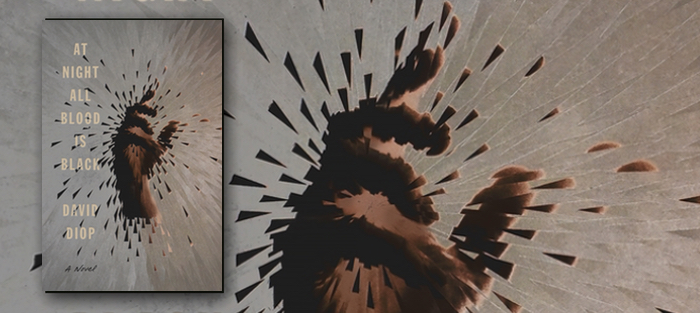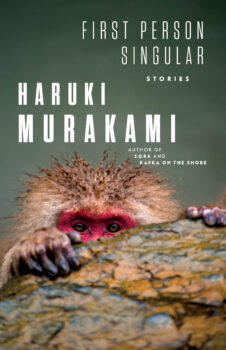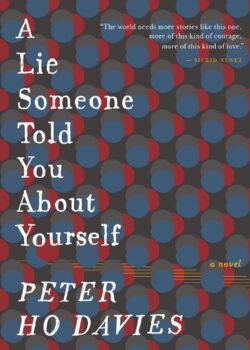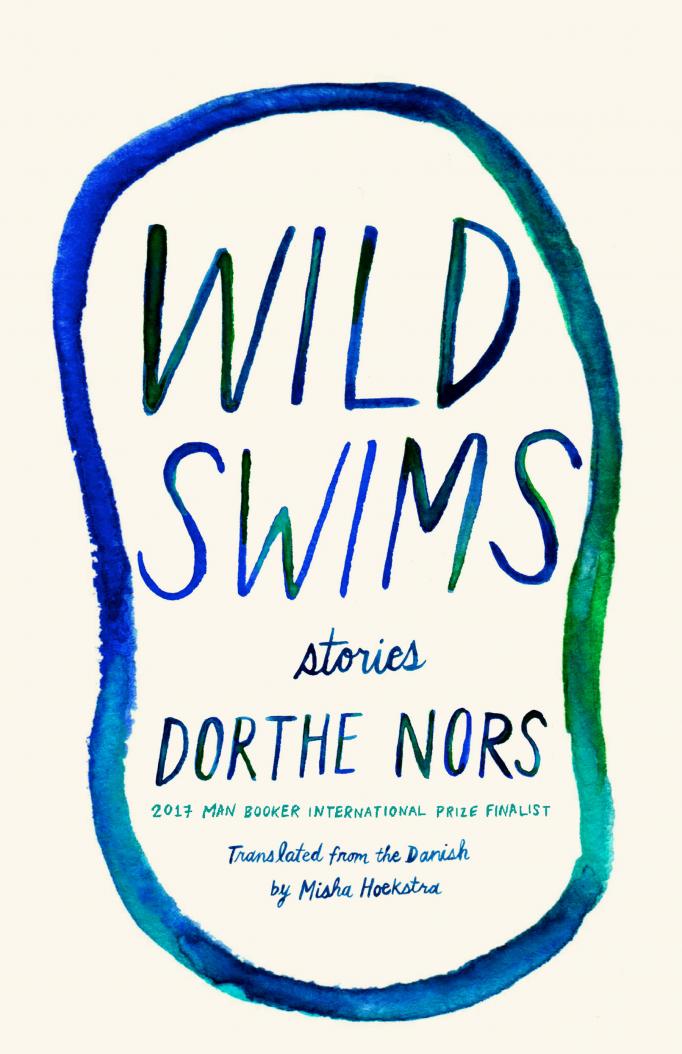War, the Greek philosopher Heraclitus of Ephesus once said, is the father of all and the king of all. In Heraclitus’ telling, it is we poor mortals who are war’s unhappy children, and its subjects. But he could have also been talking about the countless books that war has sired, those literary masterpieces of blood and iron and colossal suffering over which war—that great annihilator of psyche and civilization alike—has long held sway. Homer’s Iliad, Tolstoy’s War and Peace, Pat Barker’s miraculous, mammoth Regeneration Trilogy, and now, David Diop’s remarkable (and yes, fair warning, very disturbing) novel At Night All Blood is Black (translated from the French by Anna Moschovakis, FSG).
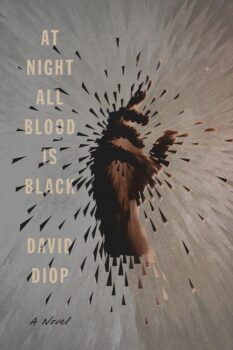 Here story and storyteller are one and the same. Alfa Ndiaye, a young Senegalese soldier who along with his childhood friend, Mademba Diop, has volunteered to fight for the French, finds himself trapped in the nightmare that was trench life during World War One. It is Ndiaye’s voice—resonate, ruthlessly matter-of-fact, deeply wounded—which will be our light in this blood-soaked landscape of rusting barbed wire and whizzing shrapnel. Driven to madness not only by the gruesome, agonized death of Mademba Diop, but also by the daily slaughter in which he takes part, Ndiaye has become what he calls “a true friend of death, its accomplice, its more-than-brother.” At night, under cover of darkness, he sneaks through no-man’s-land to kidnap blue-eyed German soldiers, whom he meticulously butchers in a ritual meant to reenact his friend’s last dreadful moments. From each soldier he murders—and much to the alarm of his comrades—Ndiaye collects a gruesome memento: a human hand, which he keeps as a kind of souvenir or talisman to his own growing insanity. For the French officer under whom he serves, Captain Armand, “…a small man with matching black eyes drowning in continuous rage,” these nightly raids into the German trenches fairly quickly begin to tip beyond the acceptable madness that is sanctioned warfare. “You will content yourself with killing them, not mutilating them,” Armand orders without a hint of irony. “The civilities of war forbid it.”
Here story and storyteller are one and the same. Alfa Ndiaye, a young Senegalese soldier who along with his childhood friend, Mademba Diop, has volunteered to fight for the French, finds himself trapped in the nightmare that was trench life during World War One. It is Ndiaye’s voice—resonate, ruthlessly matter-of-fact, deeply wounded—which will be our light in this blood-soaked landscape of rusting barbed wire and whizzing shrapnel. Driven to madness not only by the gruesome, agonized death of Mademba Diop, but also by the daily slaughter in which he takes part, Ndiaye has become what he calls “a true friend of death, its accomplice, its more-than-brother.” At night, under cover of darkness, he sneaks through no-man’s-land to kidnap blue-eyed German soldiers, whom he meticulously butchers in a ritual meant to reenact his friend’s last dreadful moments. From each soldier he murders—and much to the alarm of his comrades—Ndiaye collects a gruesome memento: a human hand, which he keeps as a kind of souvenir or talisman to his own growing insanity. For the French officer under whom he serves, Captain Armand, “…a small man with matching black eyes drowning in continuous rage,” these nightly raids into the German trenches fairly quickly begin to tip beyond the acceptable madness that is sanctioned warfare. “You will content yourself with killing them, not mutilating them,” Armand orders without a hint of irony. “The civilities of war forbid it.”
But Ndiaye has seen these so-called civilities for what they truly are. And while there may be nothing particularly new or revelatory in Diop’s assertion that war sometimes transforms men into monsters, what does feel new, and what makes At Night All Blood is Black a welcome addition to the oeuvre, is Ndiaye’s voice. Here, finally, is a novel about World War One told from the perspective of those soldiers who left their villages in Africa and India to fight alongside the French and English, soldiers who were all too often viewed even by their own officers as bloodthirsty killers without soul or conscience. As Ndiaye reflects: “The captain’s France needs our savagery, and because we are obedient, myself and the others, we play the savage.” This savagery is simply a role, he admits to the reader, one his fellow Chocolats, as the African soldiers call themselves, perform with the full awareness that it is a lie.
Sadly, the novel loses a little traction in the final section, after Ndiaye is sent off to recover in a French psychiatric hospital. There he is taken under the care of Doctor Francois, “a good man,” Ndiaye’s tells us, and Mademoiselle Francois, the doctor’s daughter. It is in these last quiet chapters that Ndiaye returns in memory to the small village he left behind, Gandiol, and to the beautiful young woman, Fary Thiam, whom he has said goodbye to, possibly forever. We get a sense of Ndiaye’s painful family history—his mother and father are both brought into focus to fine effect—and we get a deeper look into his friendship with Mademba Diop, whose own family more or less adopted Ndiaye when his mother vanished from his life. But what we also get are scenes and even whole chapters that lack the rigorous clarity of Ndiaye’s narration. In particular, a moment of what might be called spiritual transformation, when we suddenly find ourselves dropped into an entirely new perspective. “Where am I?” this new voice asks. “It feels like I’ve returned from far away. Who am I? I don’t know anymore. Shadows surround me.” Because of the abruptness of this transformation, this last section, for all its lyricism, felt at times like odd ends cobbled together as a way of tying off Ndiaye’s story rather than the mythical gesturing toward transformation the author might have been seeking. Does it wreck the novel? No—at least in my opinion it doesn’t. But it does leave the book’s ending a bit untethered, I’m afraid, and may likewise leave some of its readers grasping for answers. And yet where At Night All Blood is Black truly succeeds—and succeeds marvelously—is when it simply allows us to witness the experience of those soldiers like Ndiaye whose stories, until now, have gone untold.

